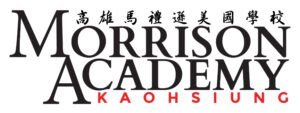Elementary School Overview
At MAK our elementary program gives students a strong academic and social foundation that will help them as they grow and develop into maturing students. Our goal is to provide each student with quality academics and a caring community.
Academic Excellence
Elementary students at MAK study the following core courses: Language Arts, Math, Science, Social Studies, and Bible. In addition, students also take special classes such as Library, Art, Music, Physical Education, and Chinese that help students to become well-rounded individuals. Our teachers diligently work to assist students in reaching their academic goals each year.
Learning Beyond the Classroom
To reinforce the academic content learned in class, teachers often take students on field trips so that students can have a first-hand look at the world around them. Some places that our students have gone on trips include: Tainan Zoo; Meinong; Kaohsiung Science Museum; Love River for a lantern festival; an area of rural Taiwan to explore farming life; an active mud volcano; Sontenkan, a living ideas farm; and Wushulin, a sugar refinery, and old railway! We also have a very exciting after school activities program that meets twice a week for elementary students. Students can choose from a wide variety of extra-curricular activities including cooking, martial arts, sports, computer, string ensemble, and much more. Students enjoy using this time to explore their gifts and talents.
Character Development
In addition to academics we also emphasize character development. Each month a student from each grade level is awarded for exemplary behavior corresponding to elements of our “Vision for our Learners” which include: Christ Follower, Effective Communicator, Rational and Critical Thinker, Life-Long Learner, Moral and Ethical Citizen, and Steward of Quality of Life. These awards are given to students who are nominated by their classmates.
Building Community
To promote a caring community, our elementary teachers often rally together for joint events in which all elementary students and parents can participate. Past elementary school programs include the Character Parade, Thanksgiving Dinner at School, Reading Day, and Spiritual Emphasis Week. Our helpful parent volunteers work together with teachers to create these meaningful experiences for our elementary students.
Our elementary school at MAK is deeply committed to helping students grow and develop by providing them with both quality academics and a caring community.
Kindergarten
Kindergarten is the first opportunity for children to begin to understand that school is a place for learning and working. They will learn about sharing, taking turns, respecting the rights of others, and taking care of themselves.
The kindergarten program provides initial learning experiences in language development, number concepts, creative skills, and social and physical growth. Using concrete experiences, pupils are given the building blocks for perceiving, thinking, and problem-solving. Educational experiences provide balance and variety among physical, mental, spiritual, and social activities as the child’s world of awareness is extended from the home to the classroom.
The kindergarten classroom is a language-rich experience for all. Students are introduced to basic reading skills through shared reading experiences, rhymes, poems, classic stories, and stories created by children. Technology is introduced as a learning tool. Skills related to visual and auditory discrimination, left to right orientation, vocabulary development, whole word recognition, and relationships between letters and sounds are taught in the context of responding to high-quality children’s literature and our Houghton Mifflin integrated language arts program.
Math instruction uses Engage New York as the primary resource. Handwriting and phonics is learned through the Logic of English program. Harcourt Social Studies and National Geographic Science provide strong curricula in those areas. Each child will receive a personal Jesus Story Bible for use in kindergarten and to keep at the end of the school year.
1st Grade
First grade at MAK is a positive place where reading and writing are encouraged.
It is a crucial year for building reading and comprehension skills. Students will talk more about what they are reading and gain a deeper understanding of what they read. Once students master writing the letters of the alphabet and begin to improve their spelling skills, they will take the next step in first grade and write longer pieces in a variety of genres.
First graders at MAK continue to develop their addition and subtraction skills and gain a deeper understanding of the concepts through Engage NY curriculum. Students will begin to write about the math they do and answer questions about how they solve problems and understand things.
First graders at MAK spend time as scientists, exploring, experimenting and observing the world around them. They are taught to observe, ask questions, and record their observations and answers. Our science lessons will often overlap with math and literacy.
First graders at MAK will learn history, geography and more about their community. Students will enhance their research skills, general knowledge of the world around them, and the ability to compare and contrast different groups. This is done in a variety of ways through group projects, group research, “read-alouds” and exploratory activities.
First graders at MAK will learn that God is the source of all truth, and the Bible is God’s special revelation for all humanity. Students will memorize Bible verses, study Bible stories and attend Chapel each week.
We are always learning and having fun!
2nd Grade
Second graders at MAK work very hard at developing their reading and writing skills. This is one of the main focuses for the year. Students learn many reading and writing strategies that can be used for the rest of their lives. They also get to enjoy hearing lots of stories told to them during Read-A-Loud time in class each day. We read through many funny and adventurous stories.
Students spend time in second grade asking questions to help them understand more about math. They find many different strategies that allow them to solve real life math problems in multiple ways. It is always exciting to see students begin to understand why things work in math and how to apply that to life.
In Science, students learn about the world around them by studying topics such as properties and states of matter, diversity within ecosystems, and changes of the earth. Students learn through investigating phenomena and doing hands on experiments to test hypotheses. Social Studies lessons will provide students an opportunity to practice research skills and apply their new understandings in real world situations. In 2nd grade, students will focus on understanding how people live in and influence the earth.
3rd Grade
Third grade is a time of great fun for the students, but also great growth. This is often the year identified as the year in which the students are required to show more responsibility and maturity than in their lower elementary years.
In third grade, most students have become fluent readers and read chapter books with pleasure. Books in a series often draw these students into extending their independent reading. Our balanced literacy approach provides a solid framework of integration between all language arts skills. Comprehension and vocabulary skills continue to grow. Supplemental core stories also allow integration of biblical principles, science, social studies, health, art, and other subjects. Technology skills are developed as learning tools. Specialists teach your child Mandarin, visual arts, performing arts, physical education, and library media skills. Each has a key part in your child’s week.
4th Grade
In fourth grade, we focus on being responsible and making wise choices throughout the year. A verse I often pray for our students is Colossians 2:2-3. It says, “My goal is that they may be encouraged in heart and united in love, so that they may have the full riches of complete understanding, in order that they may know the mystery of God, namely, Christ, in whom are hidden all the treasures of wisdom and knowledge.”
Fourth graders at MAK work very hard at developing their reading and writing skills. This is one of the main areas of focus for the year. Students learn many reading and writing strategies that can be used for the rest of their lives. They also learn how to evaluate their writing more carefully, and how to use strategies to improve their writing skills.
Students spend time in fourth grade addressing questions to help them better understand and develop their math skills. It is more than simply coming up with the correct answer; students are challenged to think more deeply, as they develop problem-solving and reasoning skills. They also come to realize that we may be able to solve math problems in different ways. So we evaluate the different ways we solve the same problem and how these strategies can help us solve real-life problems.
In science, students learn through exploring, designing, and discovery. The science units focus on making models to show how things work. Science labs help students develop critical thinking skills as they discover more about animal structures and senses, energy, waves, rock formations and erosion, and learning how to read and evaluate data based on the scientific method.
Fourth-grade social studies provide opportunities for students to focus on the five regions of the United States of America. They evaluate the way people live and how it influences the culture around them. In the five regions, Northeast, Southeast, Midwest, West, and Southwest, students focus on history, geography, culture, government, and interesting facts about these regions.
5th Grade
5th grade is all about developing to become independent learners in preparation for middle school. Through lessons, discussions, projects, and literature, 5th graders are challenged to think critically and ask hard questions.
Bible in 5th grade consists of students taking a deeper look into the Old Testament stories and characters. Through reading the Bible, prayer, and listening to other perspectives, students are challenged reflect on their own lives and answer the question on how to make good choices.
Language Arts time consists of reading books with various themes and ideas. A large focus in 5th grade is on non-fictional text. We start off the year taking a close look into human rights and end the year on reading informational text on natural disasters and their effect on people’s lives. In writing we go through the writing process and take a closer look on how to write narratives, graphic novels, opinion pieces, and expository writing.
In Social Studies we study a few key events in American history. 5th grade starts with learning about explorers who colonized America. Throughout the year we continue to learn about the American Revolution and end with the Civil war. There are many projects during each unit that allows students to think outside the box and practice their research skills.
5th grade Science is a fun time to learn about the world around us. The year starts with many in-class science experiments learning about states of matter and their characteristics. We move on to life science and the human impact on the world around us.
5th grade is an important year for students to own their learning. We focus a lot on responsibility with our school work and respect towards others. Incoming 5th graders should be ready to work hard and have fun.

